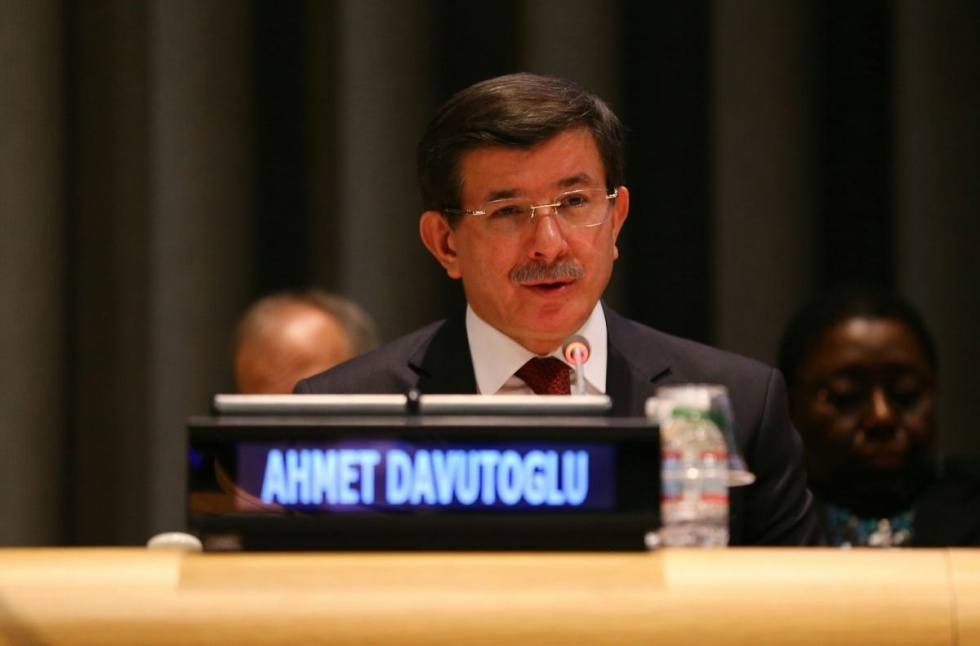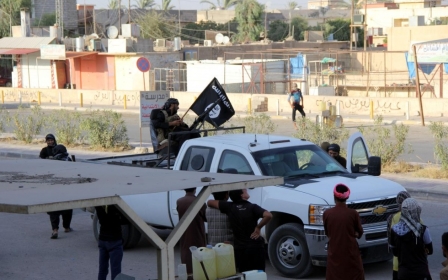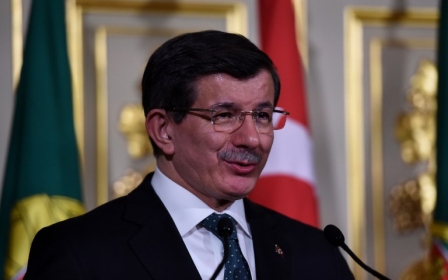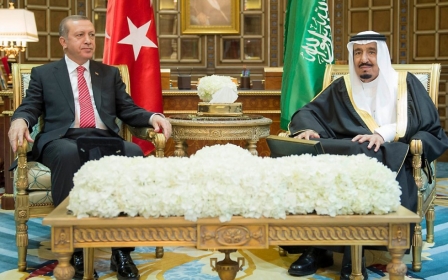Davutoglu’s dilemma

Late on Monday evening, the Turkish government made a surprise announcement that Hakan Fidan, the Turkish intelligence chief who resigned on 6 February to run for parliament thus incurring the public displeasure of his boss, President Recep Tayyip Erdogan, had been reappointed to his former post.
This is certainly good news for his organisation where, it is generally believed, Fidan was regarded as an outstanding head of intelligence. Indeed, off the record, the reason being given for his reappointment is that the government was unable to find anyone else of the same quality for the job. It is likely that it was nonetheless a considerable disappointment for Fidan himself who has thus been forced to drop his political ambitions. He was poised not just to top the AKP’s candidates’ list in the elections, but probably to become foreign minister in the Turkish government formed after the June election.
But, running for office against the stated displeasure of the head of state and founder of his party, would obviously have been problematic. There are claims in this morning’s Turkish press that as a MP Fidan would very likely have been unable to hold any office which would have required the president’s signature.
He can have no room for doubt what the situation would have been. After resigning Fidan went on Umra, a pilgrimage to Mecca and Medina, and it seems that the two men met in Medina on 2 March 2 and Fidan was, if not immediately, eventually convinced. It remains to be seen whether or not a deal of any kind was struck.
Fidan’s return to his old job was criticised by opposition parties as very irregular, not least since, having thrown his hat into the ring as an AKP candidate, Fidan can no longer claim to be politically impartial during the election campaign period. But the government is unlikely to be much troubled by such charges.
All this is not simply office politics, because it ties in with two other important developments in Turkey. The first is what many feel may be uneasy relations between the president and his prime minister, Ahmet Davutoglu. The second is the slide of the Turkish lira on the markets in the last month from $2.45 to the dollar a month ago to $2.62 last weekend - and the currency is still fighting to hold its own.
Its weakness follows strong pressure from the President and his ministers on the Central Bank for interest rate cuts, leaving the main Turkish overnight borrowing rate at 7.5%, neck and neck with the country’s still relatively high inflation. The president says that he wants low interest rates in order to enable Turkish businesses to grow. He probably also dislikes interest payment for its own sake - Turkey’s three major state banks are reported to be setting up subsidiaries operating as Islamic banks. This may portend the future evolution of the Turkish financial system. He also argues - like most governments in countries where currencies are under pressure - that market speculators are conspiring against the lira.
Be that as it may, the international markets are uneasy and a trip to meet the financial world in New York last week by the prime minister and the ministers of finance and economics does not seem to have reassured them much. So with memories of the flight of “hot money” from Turkey in February 2001 and the very painful national economic crisis that followed, Turks are nervous. If, or perhaps when, the Central Bank raises interest rates again, the lira will strengthen but probably not before.
In trying to deal with this and other problems, Davutoglu faces a dilemma. According to the constitution and the way Turkey’s institutions currently work, he is a strong executive prime minister and decisions rest with him. But the president, because he is popularly elected, regards himself as the decision-taker and is reported to have been annoyed whenever Davutoglu launched legislation and policies without consulting him first. To underline this point, on 9 March, the president chaired a cabinet meeting for the second time this year in the presidential palace - something which was very unusual indeed before 2015.
Last Friday the president suggested that his predecessor, former president Abdullah Gul, might run as a candidate in the elections. This was widely interpreted as an attempt to reintroduce a heavy-weight player into politics who would counterbalance Davutoglu. But it is not going to happen. Gul, a very skilled political tactician, has now indicated that he does not want to stand.
Davutoglu thus looks a little isolated. He has only a slender political base compared to other senior figures in the cabinet. But precisely for that reason, logic suggests he is probably at present the most suitable person for the job from the point of view of the presidential palace and he has an undoubted good record as an administrator.
So the campaign for the 7 June general elections starts with some disarray for the AKP, but the return of Fidan to his job shows President Erdogan is master of the situation. His sights now are on persuading the Turkish electorate to give him the two thirds majority he needs to replace Turkey’s existing constitution with one which makes him an executive head of state with all the strings of government in his hand. He would like, he recently told voters, 400 seats in the 550 strong assembly. Victory in Turkish politics is an elusive thing and has slipped out of the hands of many hopefuls in the past as voters may conceal their intentions until the last moment.
Nevertheless polls suggest the AKP still holds the support of about 50% of the voters. With no real rivals inside either his party or the opposition, President Erdogan’s prospects depend almost entirely on how he handles his campaign and the economy, especially the currency. With Fidan back at his desk, the president’s situation looks even more solid than it did a week ago.
- David Barchard has worked in Turkey as a journalist, consultant, and university teacher. He writes regularly on Turkish society, politics, and history, and is currently finishing a book on the Ottoman Empire in the 19th century.
The views expressed in this article belong to the author and do not necessarily reflect the editorial policy of Middle East Eye.
Photo: Davutoglu addresses UN General Assembly on gender equality and empowerment of women in New York on 6 March (AA)
New MEE newsletter: Jerusalem Dispatch
Sign up to get the latest insights and analysis on Israel-Palestine, alongside Turkey Unpacked and other MEE newsletters
Middle East Eye delivers independent and unrivalled coverage and analysis of the Middle East, North Africa and beyond. To learn more about republishing this content and the associated fees, please fill out this form. More about MEE can be found here.





